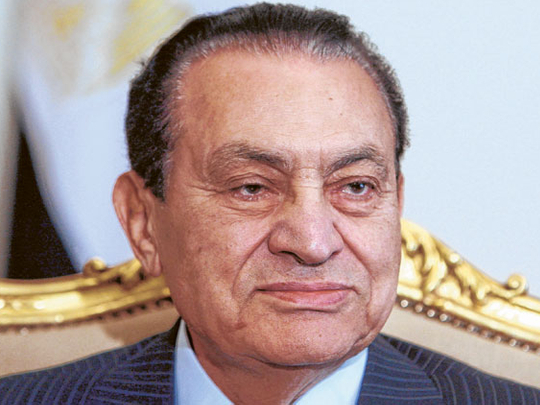
The fact that the Egyptian uprising did not bring about full-fledged change is now being reinforced by daily developments in the pivotal Arab country. The interim rulers — the Supreme Council of the Armed Forces (Scaf) and the weak government of Prime Minister Essam Sharaf — are seen to be just imitating the defunct Hosni Mubarak regime. As the time of the promised transfer of power to civilians looms, the Scaf is taking harsh decisions to stop demonstrations and sit-ins by workers and professionals, using the same oppressive laws and measures that were one of the main reasons for the popular revolt against Mubarak.
Proponents of the military's transitional rule would say that these measures are needed to bring under control the chaos that has followed the toppling of the Mubarak regime. They accept the enactment of emergency laws giving the interim rulers full powers to arrest people and sentence them without the right to appeal. The argument is that exceptional powers are needed to make up for the vacuum created by the police and security forces' inability to carry out their work. The Muslim Brotherhood is focused mainly on the elections, and sharing power with anyone, and the majority of ordinary Egyptians are concerned about lack of security on the streets. Opponents of military rule argue that leading generals of Scaf are remnants of the Mubarak regime, who sacrificed Mubarak to give the regime a lifeline. These people are bitter revolutionaries who put their lives on the line during the uprising against Mubarak and feel that the generals they entrusted to rule for an interim period may hang on to the throne. They say that the uprising was reduced to just removing heir-apparent Jamal Mubarak from the scene. The core of the uprising, the younger generation that led protests which were adopted by masses, finds itself the target of arbitrary arrests and trials in front of military courts. That fits with the political opportunism of getting rid of those who helped them become the rulers.
I don't think both sides got it right completely, as all indications are that Scaf is serious about handing over power to civilians. The longer than anticipated interim period is mainly due to the lack of political experience and disorientation of the elite, which didn't help the generals. Elections would be a cornerstone, and it could be true that Scaf wants the new civilian administration to acknowledge certain privileges for the military.
Lack of involvement
Whether remnants of the old regime are being reinstated or the regime was not totally uprooted by the uprising, the end result is the same. Blame for this shouldn't fall on the military alone; all parties are responsible for the outcome. Progressive youth, the old political opposition, including the Brotherhood, and the masses wanted regime change and entrusted a part of the regime — the military — to oversee this on their behalf. The Scaf might not lack the ‘force' to plug the gap left by the police meltdown, but it lacks other means of running a country like Egypt. With a bloated state bureaucracy and lack of political life, nothing is left to rule with.
Nobody, the rulers or the ruled, is thinking out of the box. No one is trying any bold moves to rebuild the collapsing institutions. Generals would seek advice all the time on state affairs, and those available to give the advice are products of the Mubarak era. So, all are remnants of the defunct regime. Sometimes — when you hear a new statement or a decision on a certain issue, one remembers Safwat Al Sharif, secretary general of the doomed National Democratic Party and speaker of the Shura council under Mubarak, who is now in prison. The other serious problem aggravating the situation and hindering any attempt to think out of the box is that a majority of ordinary Egyptians are yet to get involved in the process and stop being indifferent. The expected elections are meant to be a first step in encouraging such popular participation. But latest measures that have been announced to curb media freedom and the use of emergency laws are not a good sign.
Even if the Scaf wants to get out of politics soon, it would guarantee that elected bodies (parliament and presidency) acknowledge its power. That is the main issue in Egypt: any regime must be backed by the military which, in turn, enjoys exceptional privileges. During the last years of Mubarak's rule, the security apparatus shared some of these privileges with the military. Now it will be all for the generals, who will decide who gets what. Unless this military-backed rule changes, Egypt will not get out of the box (of Mubarak).
Dr Ayman Mustafa is a London-based Arab writer.








